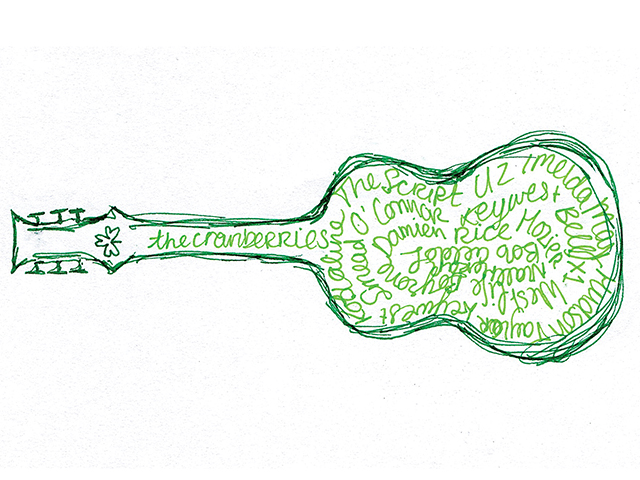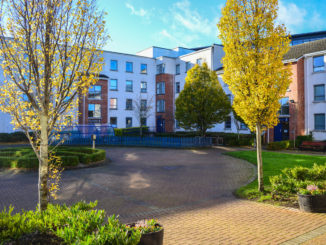
[dropcap][/dropcap]M[dropcap][/dropcap]any think of Irish music and images of an auld lad playing spoons in some pub down a bothrin pop into mind. A walk through Temple Bar in the height of July would similarly convince you as multiple renditions of Christy Moore and Van Morrison songs leak out onto the cobbled streets. While this type of music has been influential in its own right, the plethora of genres that Irish artists have permeated in recent years is so much more than what is assumed.
If you were told Ireland has some of the best up and coming hip-hop acts, you’d be forgiven for raising a sceptical eyebrow. Similarly to how U2’s stadium anthems and My Bloody Valentine’s ear shattering shoe gaze put Ireland on the map in their own way, there are artists paving the way for other genres. Pitchfork ran a feature in 2016 on the African immigrants that are pushing Ireland’s hip-hop scene. The focus was on Nigerian Simi Crowns, who moved to Ireland when he was eleven. Speaking to Pitchfork after a show, Simi says “there was always that element of being shut out or misrepresented. But now, people are realizing that my story is just as important to tell as that guy with a fucking guitar’s.”
But it isn’t just Simi Crowns. Northside Dubliner Rejjie Snow has been making waves in recent years with his unique blend of hip-hop that takes influence from Dublin and from his background of being the only black kid in his neighbourhood. Clare based Rusangano Family were awarded the Choice Music Prize, Ireland’s biggest musical award, in 2016. They beat out internationally acclaimed artists like Lisa Hannigan and James Vincent McMorrow to scoop the award, a testament to the growing support of Irish hip hop. While these artists may be based in Ireland, their roots are still firmly planted in their home soil and it oozes from their music.
Independent research by London based BOP showed that the Republic of Ireland’s economy profited €1.3 billion in 2016 from live entertainment, and supported over 8,700 jobs. Venues in Dublin like the 3Arena amass huge amounts of revenue from live shows while the festival circuit consisting of favourites like Longitude, Body & Soul and Electric Picnic regularly sell out; it is easy to see where the profit is coming from.
Ex-U2 manager Paul McGuinness has spoken out numerous times about how the government are consistently cutting the budget for the arts despite the evident increase in popularity and it is easy to see how it can be frustrating. But regardless of how much or how little support the sector receives in funding from the government, it still continues to thrive.
Venues like the iconic Whelan’s have no shortage of artists lining up to play and give great support to upcoming bands through their annual One’s To Watch Festival, that takes place in January. Other Irish music outlets like GoldenPlec and State.ie release a list of their picks for upcoming talent, adding to the exposure and further supporting the growth.
The Irish music scene is a well knitted web that provides nothing but support and helps smaller bands find a platform where they can play their songs to new audiences. Seeing bands pal up and tour together multiple times isn’t uncommon and neither is seeing members from one band play with another. The dissolution of Fight Like Apes lead to front woman MayKay joining Le Galaxie, adding a strong female vocal to a band that have already established themselves as a strong electronic act. GoldenPlec’s Jamboree in December saw Hozier play with the likes of Loah, Zaska and members of Little Green Cars – all standout Irish acts in their own right.
Despite the lack of funding from the government and the dissatisfaction of this fact by both artists and revellers alike, it is clear that it isn’t going to slow things down. While acts like Walking on Cars, Picture This and Kodaline succeed on the international circuit to a large scale, their roots to home are still prevalent. National favourites like Ham Sandwich, And So I Watch You From Afar and Delorentos may never headline a show to the same volume of people as U2 but they have earned a loyal following through years of hard work and in doing so, have also paved the way for smaller bands to follow in their wake.
Now more than ever it is important to see Ireland as a country that has benefitted from the multiculturalism that has expanded our shores. While once we were an island of saints and scholars, it is clear now that we are far more than that and our musical output is more impressive than ever and represents just how far we’ve come as a country.



